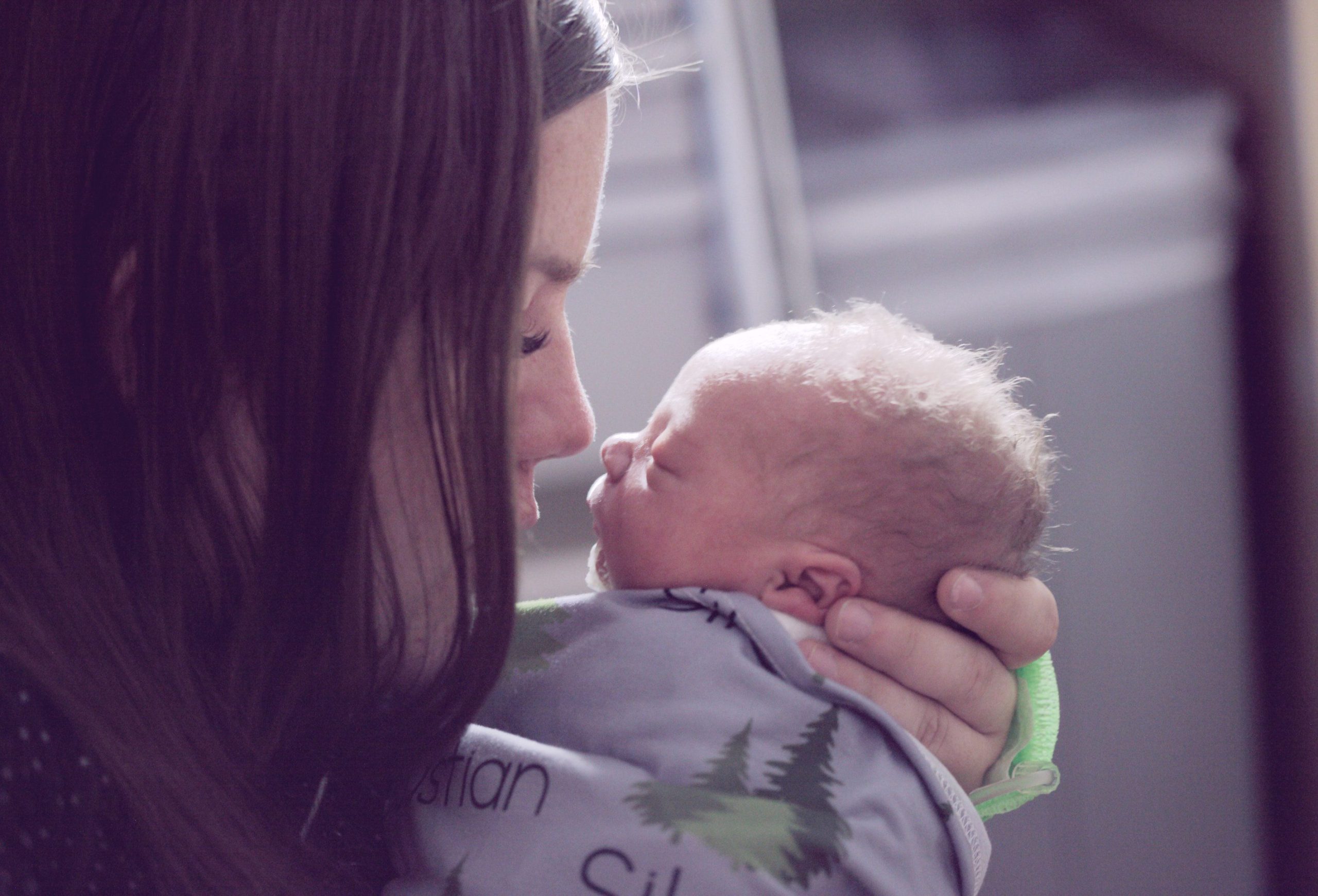Maternal Mood Disorders
Pregnancy is generally considered a period of emotional well-being for the woman and her family. However, for some women, pregnancy and the post-partum period are times of increased vulnerability to mental health disorders. Pregnancy and motherhood can lead to disturbed sleep, change in appetite, decreased energy, irritability, and worries. If these feelings persist for longer than a few weeks or interfere with daily activities and functioning, it may be a sign that you have a perinatal mood disorder and it is time to ask for help from your healthcare provider to undergo further assessment. Anxiety and depression are one of the most common medical complications during the perinatal period, which includes conception through to one year postpartum.
Risk During Postpartum
As many as 20 percent or 1 in 5 women experience depression and/or other mental health disorders during their pregnancy and/or postpartum period. Pregnant women are less likely to utilize mental health services than non-pregnant women. Ignoring persistent symptoms of depression, anxiety or other mood symptoms in the perinatal period could impose risk to you and your baby as well as to your partner and family. Mental illnesses related to the women’s reproductive system can sometimes significantly impair your ability to carry out simple daily functions. Effective treatment is available and with the right help, you can get back to feeling like yourself again.
Postpartum Psychiatric Disorders
Postpartum psychiatric disorders are generally divided into three categories: postpartum blues, postpartum psychosis and postpartum depression. Undergoing postpartum blues is a relatively common emotional disturbance where you may cry or feel confused. You may also experience mood lability and anxiety. These symptoms may appear during the first week postpartum and last for a few hours to a few days and have few negative consequences. At the other end of the spectrum, postpartum psychosis refers to a severe disorder beginning within four weeks postpartum, with delusions, hallucinations, and extensive impairment in functioning.
Postpartum Depression
Postpartum depression begins in or extends into the postpartum period. Core features include dysphoric mood, fatigue, anorexia, sleep disturbances, anxiety, excessive guilt, and suicidal thoughts. The risk factors for postpartum depression include a history of mood disorders, depression symptoms during the pregnancy and a family history of psychiatric disorders. The diagnosis of postpartum depression requires that symptoms be present for at least one month and result in some impairment in the woman’s functioning.
Stress factors, such as the ones below, have been associated with postpartum depression in some studies.
- Negative life events
- Poor marital relationships
- Having a special needs infant or medically ‘fragile’ infant
- Lack of social support
- Drug abuse
- Personal and family psychopathology
Postpartum depression tends to be milder than episodes of depression that occur at other times, with lower levels of anxiety, agitation, insomnia, and experience of increased physical pain.

Some Surprising Facts About Postpartum Depression
- It impacts fathers, too. The stressors that new fathers face are different than those faced by mothers, but they’re still very significant. Estimates of the prevalence of paternal postpartum depression vary from 4 to 25 percent (NIH, 2020). Studies so far have only used diagnostic criteria for maternal postpartum depression to investigate paternal postpartum depression. There is an urgent need to study the validity of these scales for men and develop accurate diagnostic tools for both parents.
- Postpartum depression is caused by alterations in the biological and hormonal systems in the body. Our feelings come from the brain, and hormones like estrogen and progesterone act directly on the brain. This is why, as any pregnant person could tell you, pregnancy is a very emotional time. During your pregnancy, hormones like estradiol and estrogen are being produced at a far more rapid rate and then the levels drop dramatically following delivery. These huge swings in hormones alter brain activity and these changes can lead to the onset of depressive symptoms.
- Postpartum depression is underresearched and underrecognized. For starters, there are no studies to date on how postpartum depression affects fathers or adoptive parents. However, these parents have shown similar characteristics to mothers with postpartum depression. Likewise, what mothers go through and why is still generally misunderstood among parents and healthcare professionals alike. This often leads to people living with untreated conditions. It shouldn’t be this way, and it doesn’t have to be.
Treatment Options
Medication
Because many depressive episodes occur during the childbearing years, the decision to give antidepressant drugs must be balanced between your well-being and fetal safety. If you just recently recovered from depression and you were treated with antidepressants and you are now pregnant, you could be at risk of relapse. Depression during pregnancy is associated with numerous well-being issues. These issues can include inadequate prenatal care, poor nutrition, higher preterm birth, low birth weight, pre-eclampsia, and spontaneous abortion. Further, issues such as substance abuse and other dangerous risk-taking behavior can occur. The substantial morbidity of untreated depression during pregnancy must be weighed against the risk of medication. Selective serotonin reuptake inhibitors (SSRIs) are now prescribed more than other types of treatment medication because they are associated with a low risk of toxic effects.
Therapy
Therapy is a key part of treatment for postpartum depression (PPD). But during a time when you’re likely already feeling overwhelmed and worn thin, figuring out the best type of therapy to treat your PPD can feel like a lot.
Cognitive Behavioural Therapy (CBT)
CBT is one of the most oft-used therapies for treating anxiety and depression, including postpartum depression. When talking with a therapist, you’ll learn different ways to think about and react to difficult or stressful situations. This can help you break out of behaviours or thinking patterns that may be contributing to your depression.
CBT aims to identify specific challenges you’re dealing with and find ways to cope with them. This can usually be done relatively quickly with weekly sessions. In fact, research suggests that you may notice an improvement after just six sessions.
As you talk about what’s troubling you, your therapist will encourage you to share your thoughts about these situations. Also, a therapist can help you recognize thinking patterns that are negative or inaccurate. Once you can see these thinking patterns objectively, you’ll be able to start reshaping them.
If listening to your baby cry feels overwhelming, for example, you might delve into why the crying has that effect on you.
From there, your therapist can help you view the situation based on the facts rather than your perceptions. For example, you can run through all of the things you do to meet your baby’s needs, reminding you that you are a good mom! As well, you can talk about how though it’s common for newborns to cry a lot, this phase doesn’t last forever.
Connect with us for CBT Support!
CBT is highly effective for many types of depression and mental health problems, including PPD. In fact, the majority of research shows that women with PPD who undergo cognitive behavioral therapy experience a significant improvement in their depressive symptoms. It can be used alone or alongside medication.




Leave A Comment